Drink spiking: 'I thought at one point I was going to lose her'
- Published
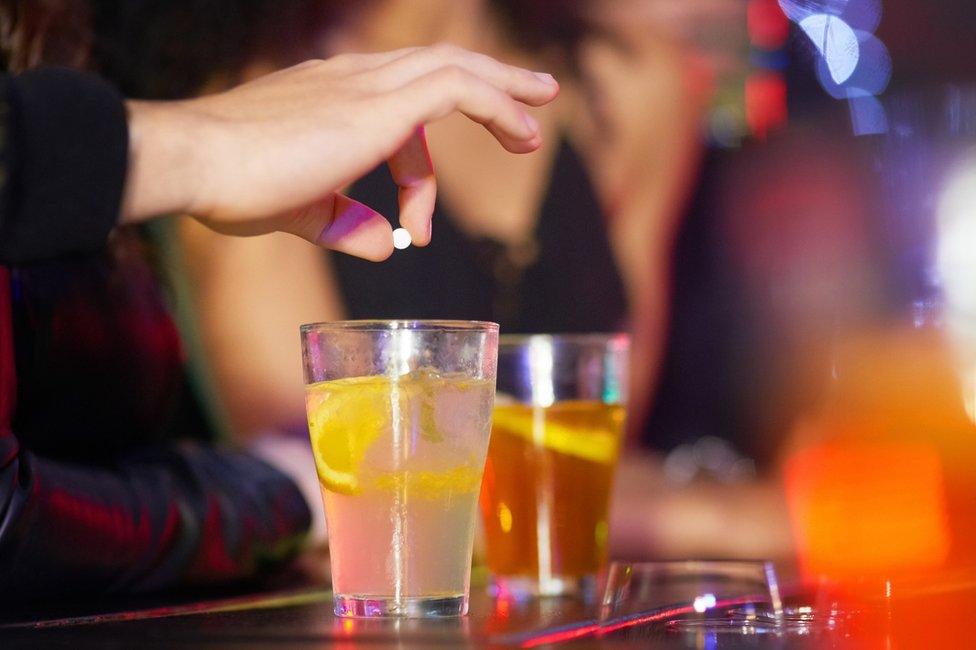
Those involved in organising boycotts warn the true number of spiking cases could be far higher than thought because many do not report incidents because of a "shame culture"
Women across the country are planning a series of boycotts of night-time venues as figures are released showing the number of drinks being spiked. But those involved in organising the boycotts warn the true number of cases could be far higher because many do not report incidents because of a "shame culture".

'The worst thing I've ever experienced as a mother'
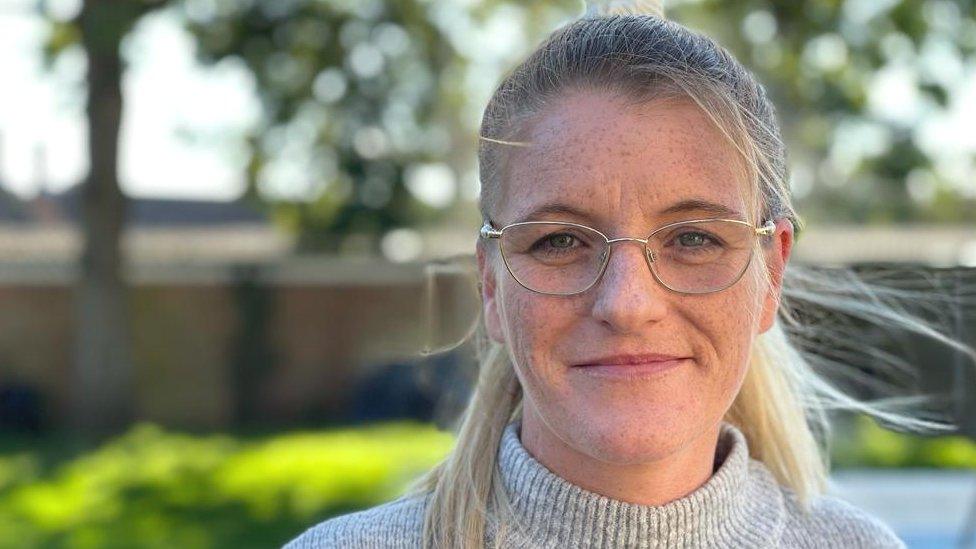
Emma Benjamin's 18-year-old daughter Shania had her drink spiked in Colchester in September
Emma Benjamin's 18-year-old daughter Shania had her drink spiked in Colchester in September and was taken to hospital.
"It was absolutely the worst thing I've ever experienced as a mother," she says.
"You hear of it happening but you never expect it to happen to you and when you see her in such a state, knowing that somebody has done this and is doing it to lots of people, it is absolutely heart-breaking.
"She couldn't walk, she couldn't communicate properly.
"I really thought at one point I was going to lose her."
Shania has since made a full recovery. Her family was contacted the following day by Essex Police because a number of other people had reported feeling unwell.
Ms Benjamin wants clubs and pubs to take more responsibility for women on nights out.
"They definitely need to start taking more duty of care to these customers that are in their club," she says.

'We felt we needed to raise awareness'
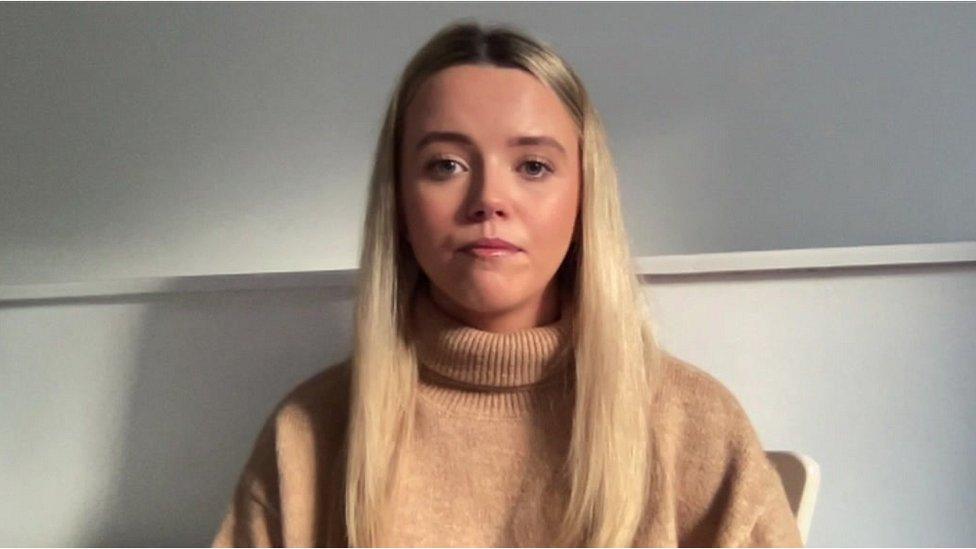
Ellie O'Sullivan and her sister Ruby set up an Instagram account raising awareness of drink spiking in the London area just over a week ago
"I think it is extremely concerning for everyone who is going out at the moment," says Ellie O'Sullivan.
Miss O'Sullivan and her sister Ruby set up an Instagram account raising awareness of drink spiking in the London area just over a week ago.
The account is part of The Girls Night In movement, which has established support in almost 50 locations across the UK.
In just seven days, their LondonNightIn account, inspired by a similar one set up in Edinburgh, has attracted more than 2,000 followers, external.
"We go out in London and we felt we needed to raise awareness here," says Miss O'Sullivan, who lives in Epping, Essex.
"Obviously spiking has always been something that you get told about," she tells BBC Essex. "Our mums and dads have always said don't leave your drinks unattended.
"But now it has become a real epidemic and with the extra threat of injection, it just becomes scarier to go out.
"We didn't really expect [the Instagram account] to snowball into what it has done now.
"We've gained thousands of followers and we get so many direct messages day to day so it is crazy to see how many people it actually affects.
"Some people have reported [spiking] to the police but there is a kind of shame culture as well when people's drinks are spiked and it puts a lot of people off reporting it.
"We want people to be talking about it and for establishments to really take on board what is going on."
You might also be interested in:
She says while neither she nor her sister have had their drinks spiked, they know people who have.
"It is crazy," she says. "It makes me feel a lot more dubious about going out to be honest.
"It affects everyone from all walks of life, it is a threat for everyone."

The figures
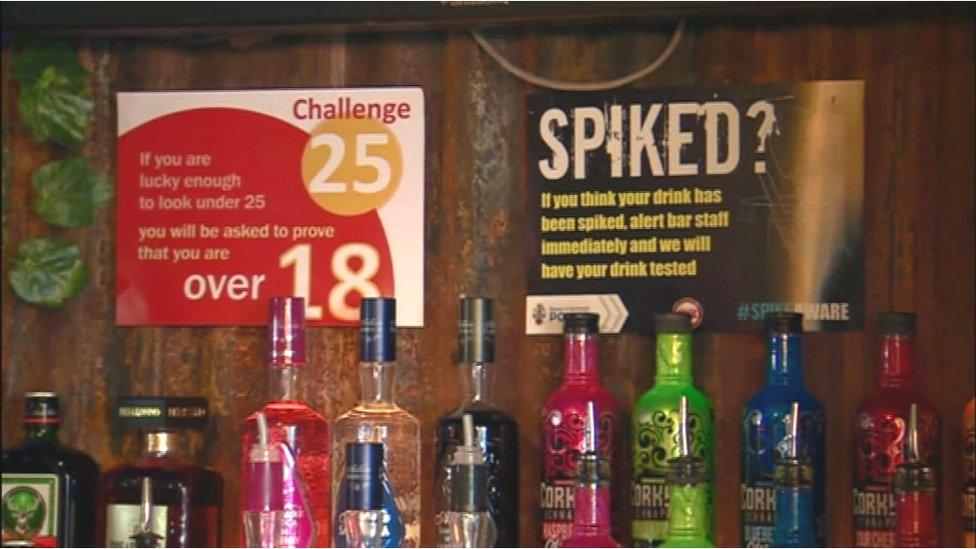
The National Police Chiefs' Council recently asked all police forces in the UK how many cases of spiking by injection they had received.
In September and October, Deputy Chief Constable Jason Harwin, who is the council's lead on drugs, says there have been 56 confirmed reports across the country.
"Police forces are investigating incidents and continue to work with pubs and clubs to increase searches and guidance to staff," he says.
"We will continue to analyse the reports and work with police forces, plus other law enforcement partners, including the National Crime Agency and regional organised crime units, as investigations develop to build a problem profile and determine any further action by police or venues.
"We would encourage anyone who believes they have been a victim or witness to spiking, in any form, to contact their local police force.
"Any reports of spiking will be investigated and taken seriously.
"You should try to report it to police as quickly as possible to help officers carry out tests and gather the best evidence."

'It is very challenging'
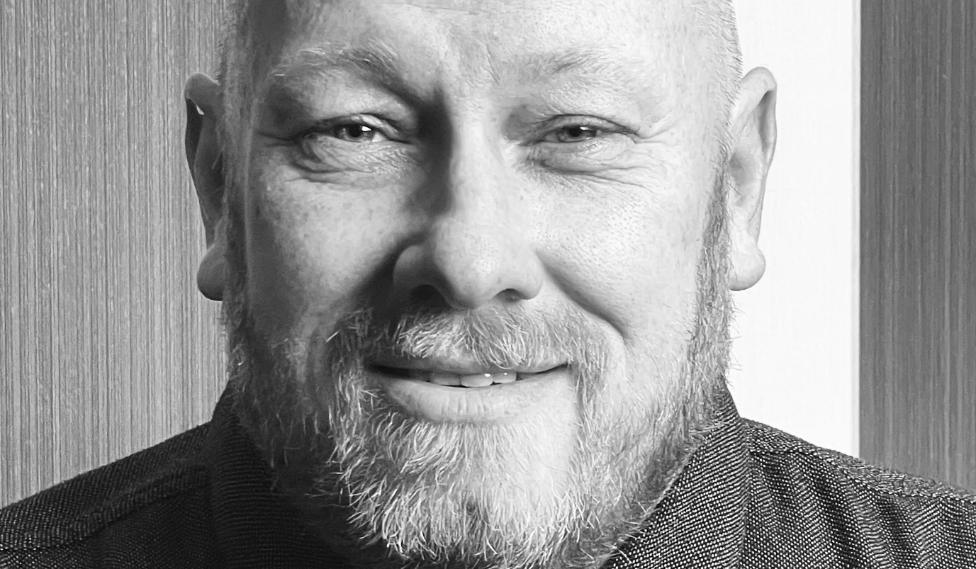
Mike Kill, chief executive of the Night Time Industries Association, says a "clear message" needs to be sent to perpetrators of drink spiking
So what is the night-time industry doing to tackle the problem?
Mike Kill, chief executive of the Night Time Industries Association, says: "It is hugely concerning, not only as a father of two daughters but also as leader of a trade body.
"It is something we have been keeping a close eye on and as more reports are coming out it has been levying some huge concern."
Mr Kill says the industry has been increasing the searches made on the doors of pubs and clubs, looking at medical provision for those affected, making greater use of testing kits and creating safe spaces for those who could be affected.
It is also looking at improving the speed and clarity of how spiking reports are handled.
"It is very challenging," he says. "It is worrying that people are not feeling safe or have a fear of crime. We need to also to address the perpetrators and start to give a clear message.
"Let's start to get hold of some of these people and convict them and make sure people are aware that this is not acceptable in any setting."

How to help a friend who you think has had their drink spiked
Stay with them and keep talking to them
Call an ambulance if their condition deteriorates
Don't let them go home on their own
Don't let them leave the venue with someone you don't know or trust
If possible, try to prevent them drinking more alcohol as this could lead to more serious problems
Urine and blood tests carried out in the first 24 to 72 hours are most likely to detect drug traces

Find BBC News: East of England on Facebook, external, Instagram, external and Twitter, external. If you have a story suggestion email eastofenglandnews@bbc.co.uk, external
- Published27 October 2021
